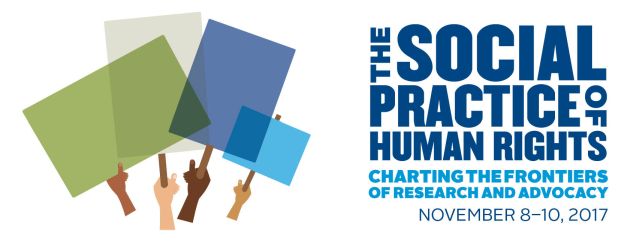
Start Date
11-8-2017 3:30 PM
Keywords
Child Soldiers, Race, Prison Industry, Agency
Abstract
The term child soldier conjures up images of a war-torn Sub-Saharan African child holding a battle-worn rifle, staring into the distance of an uncertain future. Their story is well known: A paramilitary organization entered an area and forcibly recruited children to engage in conflict — protecting arms, drugs, or "turf." Through the marketing of the child soldier story and its emotional response, the international community has been moved to action through hosting awareness raising campaigns, generating mass donations for care, and establishing recovery and rehabilitation programs.
There is no doubt that the international child soldier is viewed as a victim and is treated accordingly. But, what constitutes a child soldier and does national and international policy assign the label unfairly?
Many domestic (North American) child gang members meet the national and international definition of child soldier, having been forcibly recruited to engage in conflict. Domestic gang members, however, are generally viewed as perpetrators of crime, whereas international child soldiers are almost exclusively seen as victims of crime. This presentation argues that issues of race, borders, poverty, ethnicity, agency, American superiority, and prison-industry profit have intentionally co-opted the definition of child soldier away from domestic child gang members and that a re-conceptualization is necessary in order to address the issue.
Included in
The Forgotten Ones: Domestic Child Soldiers in the United States
The term child soldier conjures up images of a war-torn Sub-Saharan African child holding a battle-worn rifle, staring into the distance of an uncertain future. Their story is well known: A paramilitary organization entered an area and forcibly recruited children to engage in conflict — protecting arms, drugs, or "turf." Through the marketing of the child soldier story and its emotional response, the international community has been moved to action through hosting awareness raising campaigns, generating mass donations for care, and establishing recovery and rehabilitation programs.
There is no doubt that the international child soldier is viewed as a victim and is treated accordingly. But, what constitutes a child soldier and does national and international policy assign the label unfairly?
Many domestic (North American) child gang members meet the national and international definition of child soldier, having been forcibly recruited to engage in conflict. Domestic gang members, however, are generally viewed as perpetrators of crime, whereas international child soldiers are almost exclusively seen as victims of crime. This presentation argues that issues of race, borders, poverty, ethnicity, agency, American superiority, and prison-industry profit have intentionally co-opted the definition of child soldier away from domestic child gang members and that a re-conceptualization is necessary in order to address the issue.


